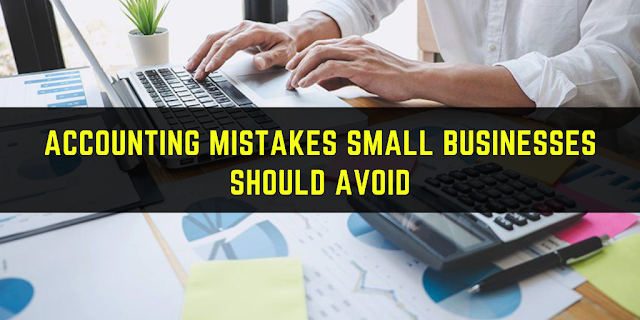Accounting Mistakes Small Businesses Should Avoid
Every small business owner dreams of expanding their business and growing it more. In the pursuit of bigger goals, various business aspects should be taken into consideration. Out of all the factors that influence your business growth, financial management is the most important one.
At the beginning of starting a small business, many entrepreneurs often decide to take care of their finances independently. This may seem more budget-friendly than hiring a
In this blog, we will review various mistakes that small businesses make in accounting.
Major Accounting Blunders Small Businesses Make:
Financial accounting in small businesses sometimes needs critical thinking to prevent your business from any financial loss. Given this, here are some errors you may cause while sorting your small business finances.Cash Flow Mismanagement:
Being a small business, you are constantly constructing your business in the best possible ways. This means investing a good amount in its development and at the same time acquiring profits. However, many small businesses cannot understand the difference between cash-flow management and profit amount. This leads businesses to overestimate their cash flow and causes mismanagement in their finances.Inefficient Financial Tracking:
It is necessary to get a detailed understanding of your expenses to determine your profit. This can also help plan out your future business expenses and maintain good savings in your business fund.This can be fulfilled efficiently if small businesses invest in advanced technology or local CPA firms to do their accounting. Despite this, many entrepreneurs risk lacking adequate cash flow management in the name of opting for affordable options. In their decision to choose only the most cost-efficient system, they limit the advances of effective financial management.
Delaying Monthly Bills:
When companies acquire cash flow monthly, they must clear their debts and payments. This factor shall be put above prioritizing your profits to avoid major complications in your finances. However, inexperienced management can lead to delaying several debts and payments.The outcome often leads to further legal complications and many more future financial restrictions. This is why keeping good track of your expenses and regulating efficient methods to manage your finances is essential.
Merging Personal and Professional Finances:
When you hire an accounting and auditing firm for small businesses, they manage your finances in a business profile. This has a positive impact on your management needs. In many cases, small businesses that do not have a systematic arrangement struggle with differentiating personal and professional finances.This is efficient when looking for a valuable tax deduction during the tax season, as you will have all the necessary records. This data can be difficult to obtain if you have a single bank account for your business and personal funds.
How Can Professional Accountants Help:
If you are facing any financial errors or making any above-stated mistakes, your business needs an expert’s guidance. Hiring a full-time accountant for your small business can benefit it in the long run.They help you put together your financial management and set concrete financial goals.
If a full-time accountant seems too much of a commitment, you can hire Business accounting firms to do the same.




Comments
Post a Comment